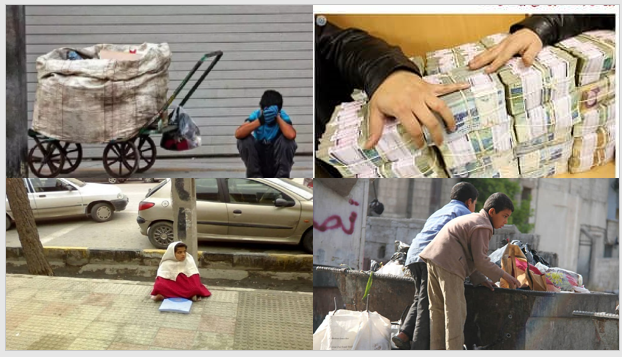

The plant manager’s subsequent mass dismissal of 13 workers further underscores the oppressive environment faced by laborers, revealing a pattern of disregard for workers’ rights.
This is not the first time the Chouvar Ilam Petrochemical Plant has witnessed such grim events, as four other workers had previously taken their own lives. The overarching issue lies in the deprivation of workers’ rights, particularly in institutions under the authority of Supreme Leader Ali Khamenei and the Revolutionary Guards. The oppressive labor laws of the regime are arbitrarily enforced, leading to unilateral actions against workers.
Economic institutions and factories, ostensibly privatized at low prices, witness the cancellation of contracts, coercion into temporary arrangements, and threats of expulsion. Such practices contradict the regime’s labor laws, as outlined in Article 12, which stipulates that changes in ownership status should not affect workers with established contracts.

ILNA’s report reveals that workers at the Chouvar Ilam Petrochemical Plant, despite having 8 to 18 years of experience, receive salaries ranging from 100 to 120 million rials. The economic hardship faced by workers is exacerbated by soaring inflation rates, as reported by the Iranian Statistics Center. With basic commodities experiencing significant price growth, the inspector of the Supreme Council of Workers highlights that Iranian labor wages rank among the lowest globally.
Dismissed workers, even those with 10 to 18 years of experience, are often denied severance pay mandated by labor laws. Recent protests at the Ahvaz National Steel Group and clashes with security forces on December 23 and 24 reflect the mounting frustration and resistance among workers.
December 26—Ahvaz, southwest #Iran
Regime security forces dispatched to suppress workers of Iran National Steel Industrial Group who are on 4th day of strike after authorities banned the entry of 21 workers & ignored the workers' demands. #IranProtestspic.twitter.com/XdFsNn1L4u— People's Mojahedin Organization of Iran (PMOI/MEK) (@Mojahedineng) December 26, 2023
The article concludes with a plea from the Labor Committee of the National Council of Resistance of Iran, urging international labor unions, worker associations, and organizations like the International Labor Organization to condemn the oppressive actions of the Iranian regime and support the ongoing struggles of Iranian workers for their fundamental rights. The only envisioned solution to end the cycle of poverty, unemployment, and corruption is the overthrow of the current regime, paving the way for democracy and the rule of the people.

MEK Iran (follow us on Twitter and Facebook), Maryam Rajavi’s on her site, Twitter & Facebook, NCRI (Twitter & Facebook), and People’s Mojahedin Organization of Iran – MEK IRAN – YouTu







